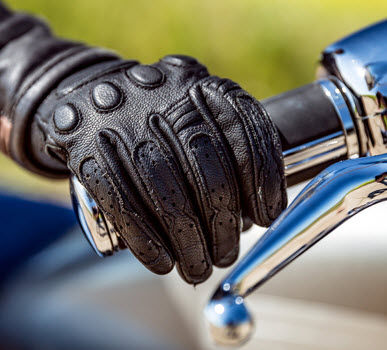Alcohol, speed, and distracted driving cause most of the car crashes in Florida. But motorcycle crashes are different. Instead of an intentional, or at least reckless, violation of the rules of the road, lack of visibility causes most motorcycle accidents. In fact, about a third of motorcycle-vehicle collisions are left turn wrecks. The tortfeasor (negligent driver) turns directly in front of an oncoming motorcycle.
The nature of these crashes makes liability much more difficult to establish, even given the low burden of proof in civil cases. The motorcycle prejudice complicates these matters even further, as outlined below…
Common Motorcycle Crash Injuries in Florida
Today’s cars are quite safe. Many low-speed vehicle-on-vehicle collisions are only “fender benders” which cause few injuries. But such wrecks almost never happen in motorcycle-on-vehicle collisions. The riders are completely exposed to all the forces of an impact, leading to serious injuries like:
- Head Injuries: Motorcycle helmets greatly reduce the number of head injuries, but they do not eliminate these wounds altogether. Indeed, the force alone is often sufficient to cause a head injury. It’s possible to injure a brain without trauma, just like it’s possible to scramble an egg without cracking it.
- Biker’s Arm: When riders are thrown off their bikes, they naturally extend their arms to break their falls. That reaction often causes Erb’s palsy, because the nerves under the arms simply cannot take that amount of force.
- Road Burns: Although not life threatening, these large abrasions severely limit mobility until they fully heal. In many cases, that process could take weeks or months.
If the Florida victim sustained a serious injury, damages in a motorcycle crash case include compensation for economic losses, such as lost wages, and noneconomic losses, such as loss of enjoyment in life. Additional punitive damages may be available as well, in some cases.
Contributory Negligence in Florida Motorcycle Crash Cases
Most bikers who have gone down probably heard the tortfeasor say “I never even saw you,” “You came out of nowhere,” or words to that effect. Phrases like these lay the foundation for the contributory negligence defense, which is a way of shifting blame for the accident to the victim.
Florida jurors are often receptive to this defense, because of the motorcycle prejudice. This idea, which is not as pronounced as it once was, is that all riders are reckless gang members. An attorney must defuse this prejudice and ensure that the jury sees the facts as they really exist.
Florida’s laws on this point help considerably. The Sunshine State is one of a few pure comparative fault jurisdictions. Even if the victim was mostly at fault for the accident, the victim still receives a proportional share of damages. Most other jurisdictions are modified comparative fault states. Victims in these places cannot receive any money unless the tortfeasors were mostly responsible for the wrecks.
Again, an attorney must work hard to deal with the contributory negligence defense. It’s important to point out all the things the rider did right. For example, many riders go to great lengths to make themselves more visible. The always have their headlights on, weave slightly in their lanes, and wear bright clothing. But usually, these tricks are inadequate. Florida motorists simply do not look for motorcycle riders in traffic. Juries usually understand this fact once it’s explained to them, and they react accordingly.
Rely On Experienced Attorneys
Motorcycle riders are often injured in serious crashes that are not their fault. For a free consultation with an experienced personal injury lawyer in Brandon, contact Reed & Reed. We have four area offices (St. Petersburg, Lakeland, Tampa, and Clearwater).
Resource:
leg.state.fl.us/statutes/index.cfm?App_mode=Display_Statute&URL=0700-0799/0768/Sections/0768.81.html

